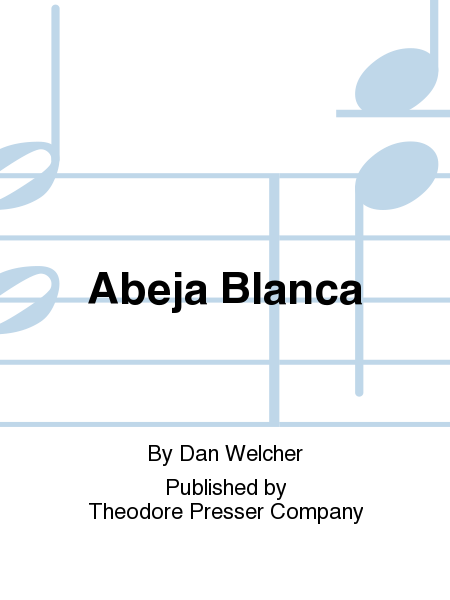Abeja Blanca
For Mezzo-soprano, English Horn, and Piano
-
Ships in 2 to 3 weeks
Details
Description
SKU: PR.161000700
For Mezzo-soprano, English Horn, and Piano. Composed by Dan Welcher. Premiered at the 1979 Aldeburgh Festival in England. Contemporary. Set of Score and Parts. With Standard notation. Composed 1978. 28+8 pages. Duration 13 minutes. Theodore Presser Company #161-00070. Published by Theodore Presser Company (PR.161000700).UPC: 680160035304.
This work was commissioned by the late American singer Jan DeGaetani, and was premiered at the 1979 Aldeburgh Festival in England. The terms of the commission were that the piece should feature the English horn as co-soloist (Ms. DeGaetani's husband, Philip West, plays that instrument) along with the piano, and my task was at first finding a text that would allow the English horn's particularly winsome color and rather exotic flavor to fit in without being intrusive. The Chilean poet Pablo Neruda's Twenty Love Poems and A Song of Despair contains a number of rather erotic poems, but the poem Abeja Blanca also contains (as the title suggests) a bee. Here was my raison d'etre for the English horn! The poem itself (used by permission of the author's widow) suggests that the White Bee is an absent love, perhaps a lover who has died or abandoned the poet. The poem contains vivid imagery around the bee itself in the first stanza: drunk with honey, the final rose etc. But by the second stanza, the bee has clearly become a symbol: she (it is definitely a she!) has the body of a frightened statue, with cool arms of flowers and a lap of rose, with breasts that seem like white snails. The author, in his musing, cannot forget her, and the way she buzzes in his soul. Perfect stuff for music, this. I was able to entwine the fluttery English Horn lines with the more lyric ones of the singer, so that by the end of this thirteen minute work, with the piano now totally absent, only the poet and his music are left - buzzing together, in and out of unisons. Jan DeGaetani had an uncanny knack of vocally matching the color of orchestral instruments, and the fact that this particular player was her husband made the collaboration all the more wonderfully suggestive. Her untimely death in 1989 left her many friends (and the numerous composers who counted themselves among her friends) sadly remembering her own unmistakable buzz. Abeja Blanca has become, to me, a vivid monument to her memory. As the poem says in its conclusion, You live again in time, slender and silent.

 Share
Share